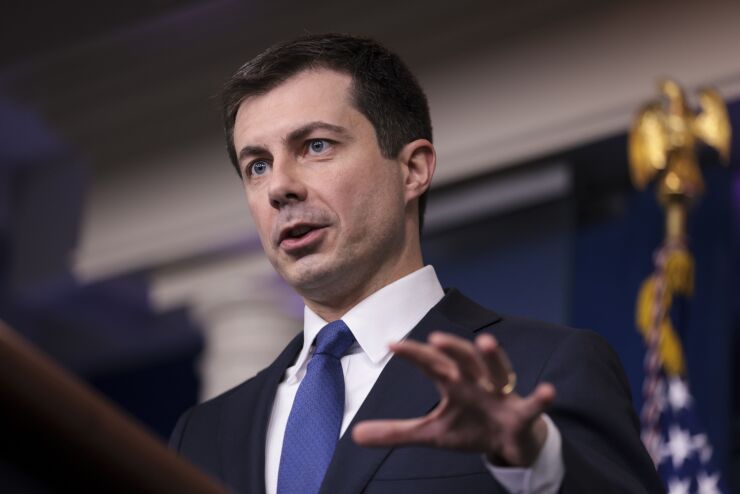States and cities trying to craft budgets to implement infrastructure projects have been stumped by requirements set in place by the Build America, Buy America Act, and the nation's top transportation official is urging them to rise to the challenge.
Passed as part of the Infrastructure Investment and Jobs Act, the act requires that the construction materials used in federally funded infrastructure projects including steel and iron be made in America. Transportation Secretary Pete Buttigieg acknowledged the challenge in comments made during the American Association of State and Highway and Transportation Officials' Washington Briefing held this week in the nation's capital, suggesting that states would find solutions given time.
"We get it," Buttigieg told the assembled state officials. "This is new, this is hard, and drawing the line in the right way can be a real challenge."
The construction industry has
"Every time we've done it, we've hit a mark that industry felt was impossible and then, because they had to, they rally," he said.
The Secretary appealed for common sense and a reliance on data for determining where the defining lines should be drawn. He also conceded the infrastructure needed to build the infrastructure still needs work.
"There are domestic capacities that really just aren't there yet," Buttigieg said. "We're recognizing the difference between where we are, and where we need to get to."

Transitioning $1.3 trillion from the federal government to the states and municipalities comes with a variety of challenges including
"I know that levels of expectation and work have been placed on your shoulders that are likely unprecedented in the lives of your state departments," said Buttigieg. "I know you've got elected officials asking a lot of questions because their expectations have been raised and the public has expectations."
The Secretary also touched on the movement to atone for transportation planning mistakes of the past and pave the way for a more
"We're working hard at DOT to modernize our own civil rights programs," he said. "You'll be hearing more from us about how we can work together to make sure our transportation work meets the requirements of legislation like Title VI, the (Americans With Disabilities Act) and the DOTs own regulations."
Buttigieg acknowledged the additional challenges of trying to design and build major transportation infrastructure projects in a world rocked by extreme weather events and forever altered by the pandemic. "We still don't know what the new normal and equilibrium is really going to be post-covid," he said. "I don't think anybody's figured it out."
The Secretary completed his remarks on an upbeat note.
"I think we can beat the problems of our time around workforce ability and raw material cost escalation, inflation supply chains, in addition to the evergreen problems and projects. But aren't those problems so much more fun to work on then the problem where we don't have any money?"





